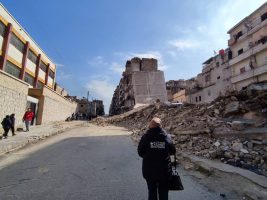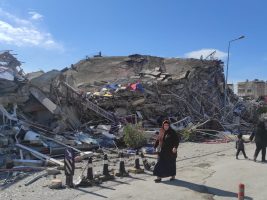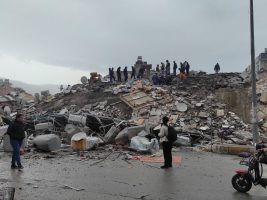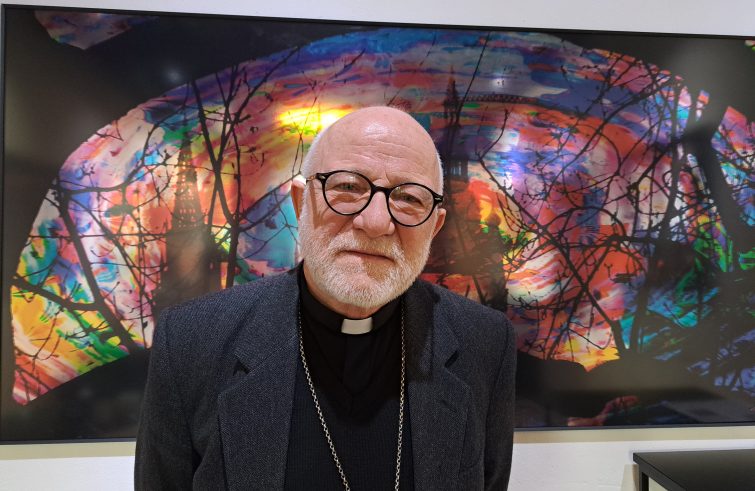
“News reports depict a disastrous situation. The death toll rises each day. There are no definite figures on the number of victims yet, but the numbers are huge. My thoughts go to those who are still under the rubble and awaiting rescue. And so many people have lost everything. It’s a catastrophe.” Msgr. Martin Kmetec, Archbishop of Izmir and President of the Turkish Bishops’ Conference, has tears in his eyes as he speaks. He is currently in Prague where he is attending the European continental assembly for the synodal process, but his mobile phone rings constantly with updates on the situation faced by the small Catholic community in Turkey. “I have no recent news from Antioch, which was completely destroyed,” he says, checking his mobile phone for the latest calls. “But the situation in Iskenderum is very difficult. The cathedral collapsed to the ground. So have other churches, Syriac, Greek Catholic and Orthodox. This is a disaster for our Christian community – both Catholic and Orthodox – because we are fragile, small in numbers and always dependent on the help and support of the international church.” “Violent earthquakes have been a constant challenge for Turkey,” the archbishop recalls. “In 2020 a quake hit my diocese of Izmir and four churches were severely damaged”. Bishop Kmetec recounts the difficulties faced in obtaining permits to rebuild and restore. The situation is even more challenging today. “With today’s economic crisis, finding funds for reconstruction is dramatic,” he says. “Prices increase by 100 per cent each year, but we intend to persevere in the perspective of God’s Providence and faithful to the will of God that we remain in these places. We will do everything we have to. I see this as a great obligation to all those, our martyrs, who have given their lives for the Church in this land throughout the centuries. Turkey is the place where the first Councils were held.”
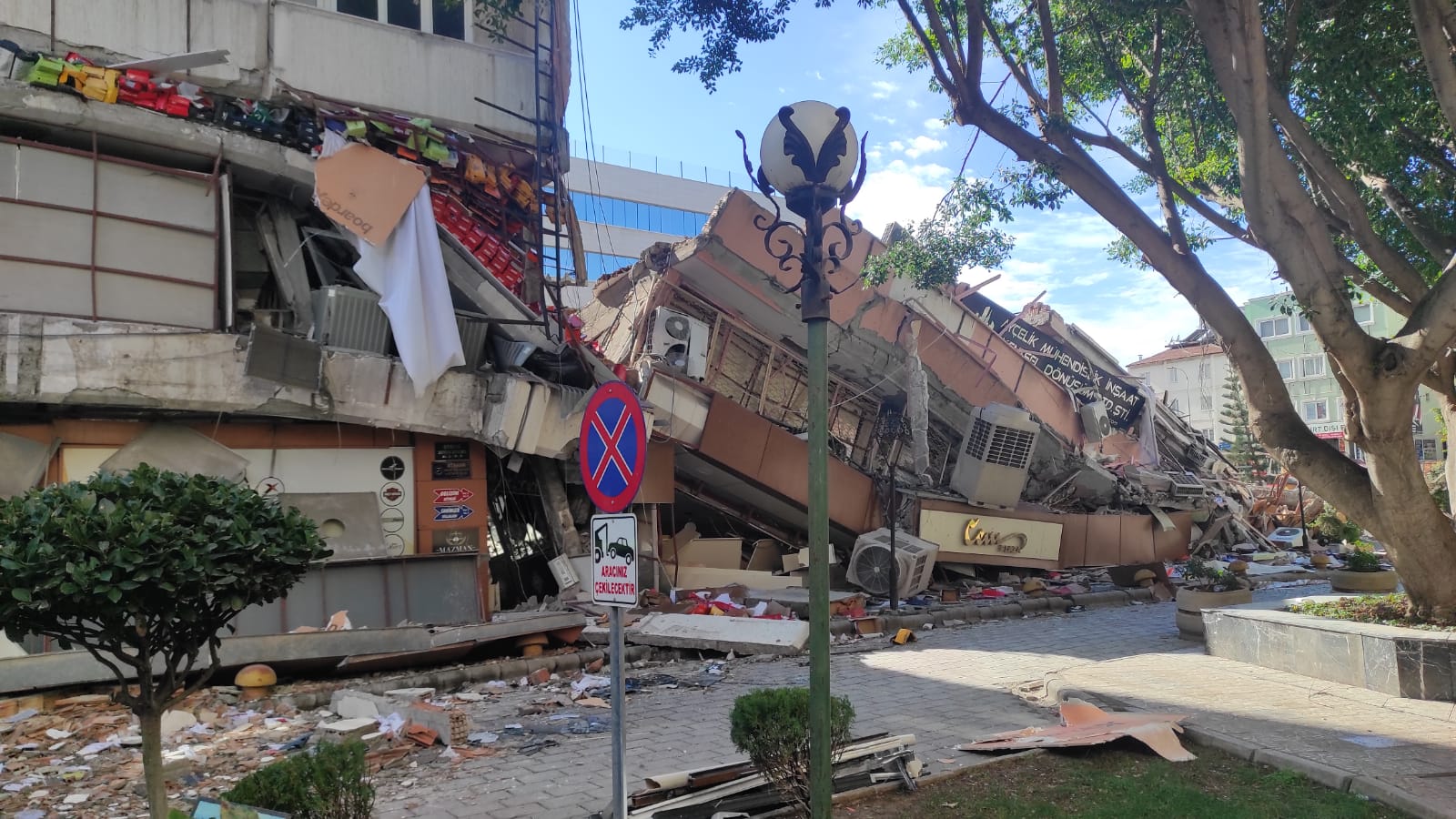 The solidarity network took action straight away.
The solidarity network took action straight away.
The earthquake called forth a great degree of solidarity and communion within the church. Even our young people in the diocese mobilised to send aid to the people affected. We are receiving messages of solidarity and concrete support.
How important is solidarity now?
It’s extremely important. It means that we are connected together in our humanity and fragility. United in our humanity. The suffering of people who lost everything, compassion for those who struggle, providing concrete help, are all cornerstones of the dialogue with Islam and with all religions. We are all united in our shared human destiny.
- (Foto: Azione contro la fame)
- (Foto Caritas Anatolia)
- (Foto Caritas Anatolia)
Are you in touch with the Christian communities in Syria?
We have not heard from them. What unites us today is our gaze at the Cross, at the crucified Christ, and our faith, which offers us the certainty that we will overcome this situation, albeit with much difficulty. Life is stronger than death. Christ is risen and He is light in the dark night. Let us remain steadfast in this hope.
The rubble, the destruction, the cold and the snow. What worries you most?
I am worried about the children, I’m worried about the women, I’m worried about the hopeless situations. Thousands of people have lost everything, their homes, the places where they used to live. Although it’s important to plan a safe future, right now these people have no idea of what will happen to them in the next six months or the rest of their lives.
Are you afraid to return?
No. I have never been afraid.
You represent the voice of the Turkish people here in Prague today. What do you feel like saying?
We need your closeness and your help. We are prepared to do everything possible. Do not abandon us.

